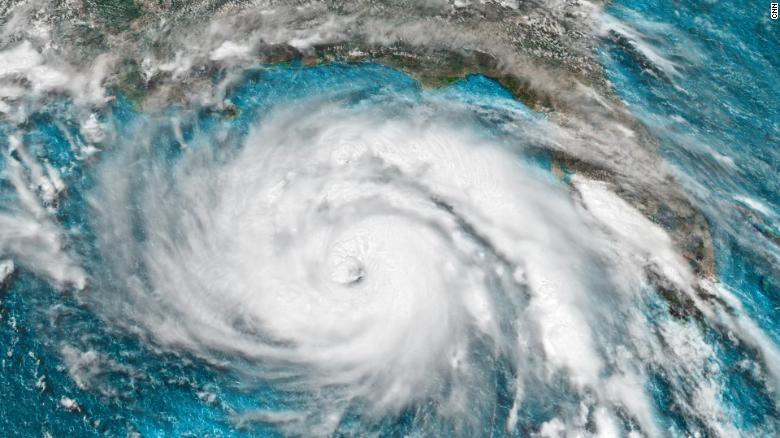By Glynn Wilson –
WASHINGTON, D.C. – Scientists for decades have been warning that climate change due to global warming from the burning of fossil fuels for energy would cause more destructive and costly hurricanes to hit the continental United States with increasing ferocity.
Study after study show this to be the case. But as the Atlantic hurricane season of 2021 technically ended Tuesday, a new study from the Massachusetts Institute of Technology published Thursday offers more evidence that there is indeed a long-term trend toward increasing numbers of Atlantic hurricanes.
The study, published in Nature Communications was first covered by The Washington Post, and it came at the close of the sixth consecutive above-average hurricane season on record.
“Hurricanes are the most costly weather disasters for the United States,” the paper reported. “The damage from the 2021 Atlantic hurricane season, for example, is expected to top $70 billion.”
Previous research suggested an increase in Atlantic hurricane intensity in recent decades, tied to human-caused climate change.
“This study not only supports that, showing storms are becoming more destructive, but also finds that both hurricanes and major hurricanes are increasing in frequency … ”
This new study was led by MIT atmospheric scientist Kerry Emanuel, who employed a novel approach to evaluate past storm activity. Rather than just relying on historical observations, which may have gaps, he performed climate modeling to reconstruct a continuous record of hurricane activity over the past 150 years from which to gauge trends.
His approach sidesteps one of the biggest hurdles in long-term hurricane research, which is the incomplete and inconsistent storm observations available before weather satellites were reliably present beginning around 1970. Before that bookkeeping was a bit spotty, especially before the 1940s, when ship reports were a primary source of observation over the open ocean.
Conventional research on past hurricanes has drawn from a universal database known as the International Best Track Archive, which dates to 1851. The data indicates an increase in hurricane activity since the 19th century, but some atmospheric scientists are skeptical that the research proved the increase, some attributing the reported increase to improved modern surveillance techniques.
But Emanuel’s modeling results suggest that there is still an increase in Atlantic hurricane frequency.
“The evidence does point, as the original historical record did, to long-term increases in North Atlantic hurricane activity,” he said in a news release.
His technique involves a process known as “dynamical downscaling,” akin to the nesting of a high-resolution model simulation within the background of a coarser global model. Emanuel fed his broader model with real-world atmosphere and ocean measurements and sprinkled the atmosphere with “seeds,” or tropical waves — the precursor to tropical storms and hurricanes.
Climate data, such as sea surface temperatures and land-based observations, are much more readily available than early hurricane reports. That made it possible for Emanuel to pump past climate “reanalysis” information into his model to reverse-engineer past hurricane seasons.
To ensure consistency of results, Emanuel used three reanalysis data sets and performed the analysis each time.
“There’s been this quite large increase in activity in the Atlantic since the mid-19th century, which I didn’t expect to see,” he said of the results.
Emanuel noted that his findings also matched observations of a “hurricane drought” during the 1970s and 1980s. He believes the culprit was a veil of sulfate aerosols stemming from fossil fuel combustion, which may have spurred a chain-reaction process that cooled the North Atlantic and reduced storm activity. Hurricanes rely on warm water to develop.
This drought ended shortly after clean-air regulations were implemented, curbing emissions of these cooling particles. Then ocean temperatures began to increase again, and so did hurricane activity.
Emanuel was careful to clarify that while his results show a noticeable uptick in the frequency of storms, the reasons aren’t clear.
“That is still a mystery, and it bears on the question of how global warming might affect future Atlantic hurricanes,” he said.
Oddly enough, Emanuel’s findings were basin-specific; while the Atlantic exhibited a demonstrable spike in hurricane incidence, the rest of the world didn’t adhere to the same trends.
“It’s really the regionality of the climate,” Emanuel said. “It may have been caused by global warming, which is not necessarily globally uniform.”
Some scientists still express skepticism of this research. But the study provides more confirmation of what the vast majority of scientists who study climate have been saying for decades.
___
If you support truth in reporting with no paywall, and fearless writing with no popup ads or sponsored content, consider making a contribution today with GoFundMe or Patreon or PayPal.














